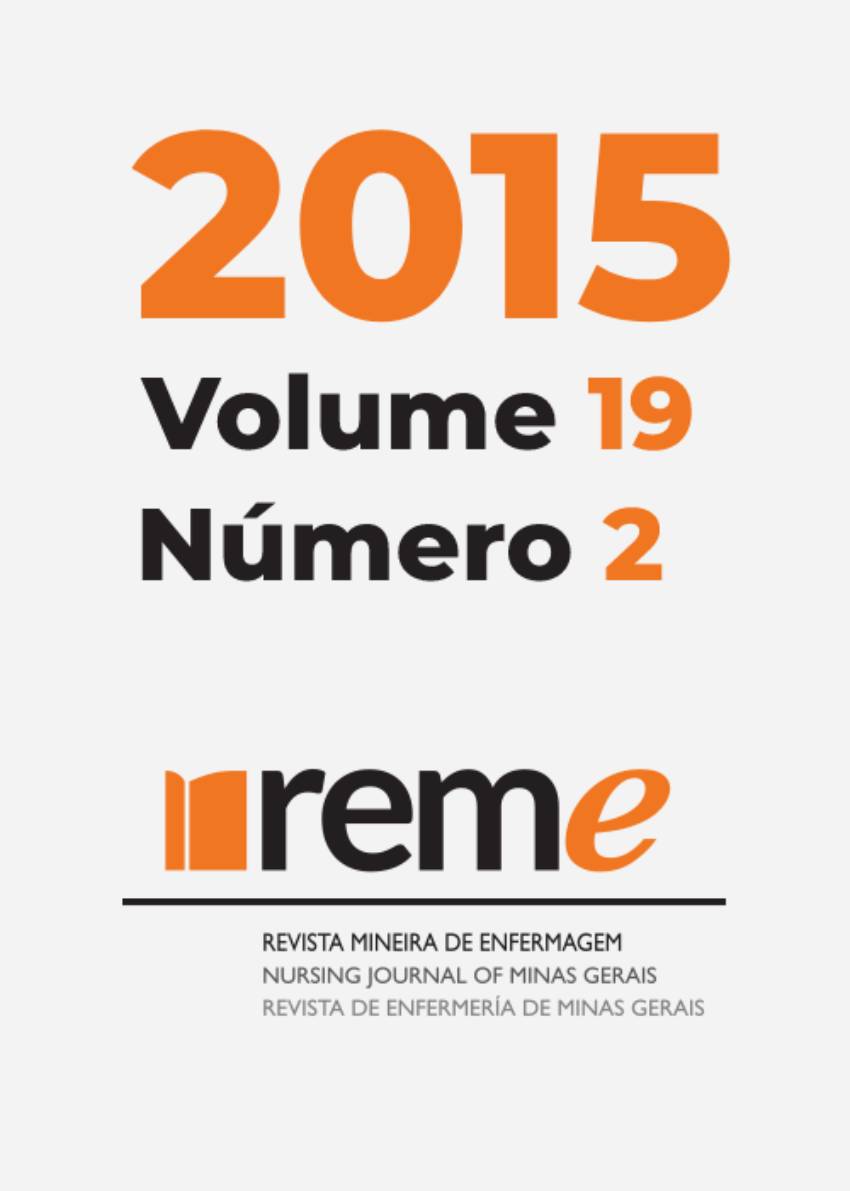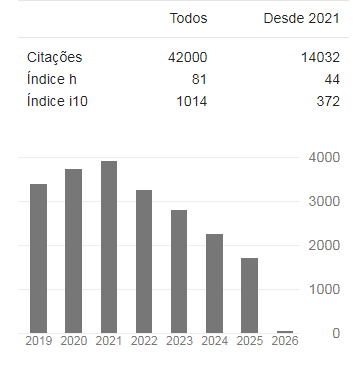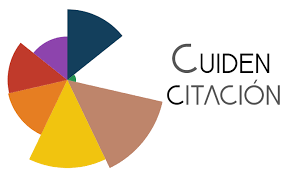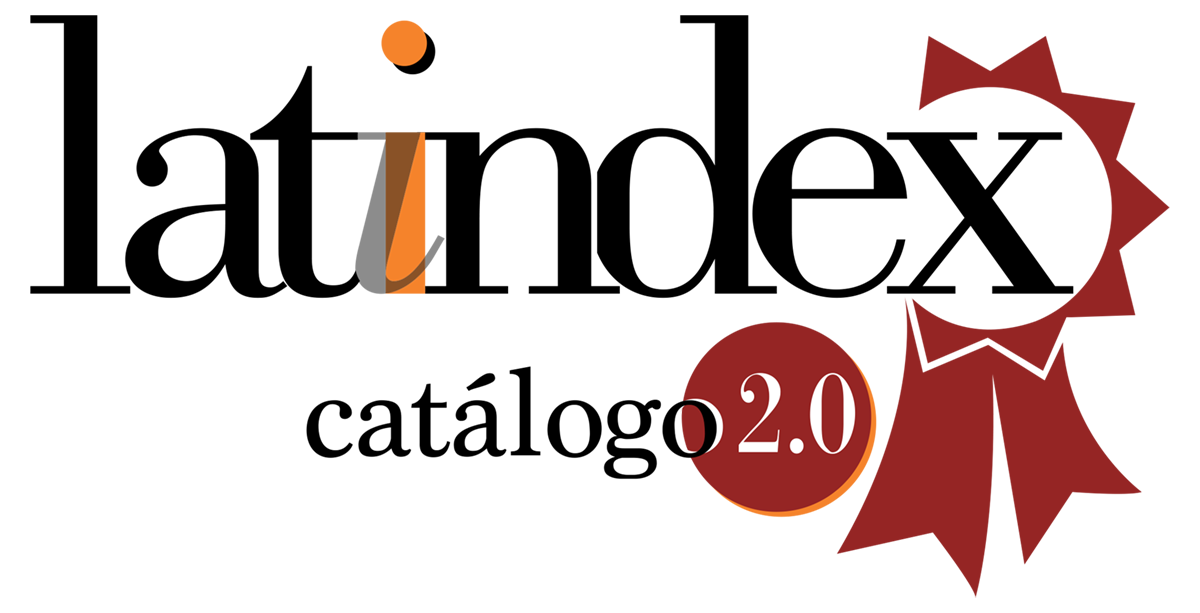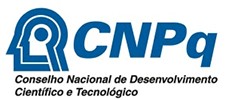Conhecimento dos alunos de graduação em educação física sobre exercício físico para indivíduos com diabetes mellitus
DOI:
https://doi.org/10.5935/1415-2762.20150022Palavras-chave:
Diabetes Mellitus, Exercício, Conhecimento, Atividade Motora, Educação de Pacientes como AssuntoResumo
Este estudo transversal teve como objetivo analisar o conhecimento de alunos de bacharelado em Educação Física sobre diabetes e exercício físico. A amostra foi constituída de 69 alunos de três cursos de bacharelado em Educação Física, em 2011. Para a coleta de dados foi elaborado questionário com 27 questões relacionadas ao conhecimento sobre conceitos da doença, sinais e sintomas e exercício físico. Os resultados mostraram que os alunos apresentaram índice satisfatório de acertos na categoria exercício físico e insatisfatório na categoria conceitos, sinais e sintomas. Das 27 questões, obteve-se média de 11,1±3,4 para as respostas corretas e de 15,0±2,8 para as incorretas; 23 alunos deixaram de responder alguma questão, média de 2,4±2,7. Recomenda-se agregar às disciplinas da grade curricular conteúdos sobre conceitos, sinais e sintomas e exercício físico relacionado à doença. Assim, o educador físico poderá contribuir para a integralidade da atenção à saúde.Downloads
Referências
1. Conselho Federal de Educação Física – CONFEF. Recomendações sobre condutas e procedimentos do profissional de educação física na atenção básica à saúde. Rio de Janeiro: CONFEF; 2010. 48 p.
2. Finch EA, Kelly MS, Marrero DG, Ackermann RT. Training YMCA Wellness Instructors to deliver an adapted version of the Diabetes Prevention Program lifestyle intervention. Diabetes Educ. 2009; 35(2):224-32.
3. Scain SF, Friedman R, Gross JL. A structured educational program improves metabolic control in patients with type 2 diabetes: a randomized controlled trial. Diabetes Educ. 2009; 35(4):603-11.
4. Torres HC, Souza ER, Lima MHM, Bodstein RC. Intervenção educativa para o autocuidado de indivíduos com Diabetes Mellitus. Acta Paul Enferm. 2011; 24(44): 514-9.
5. American College of Sports Medicine (ACSM). Exercise and type 2 diabetes: the American College of Sports Medicine and the American Diabetes Association – Joint Position Statement. Exercise and type 2 diabetes. Med Sci Sports Exerc. 2010; 42(12):2282-303.
6. American Diabetes Association (ADA). Standards of medical care in diabetes – 2011. Diabetes Care. 2011; 34(Suppl 1): S11-S61.
7. American Diabetes Association (ADA). Standards of medical care in diabetes – 2013. Diabetes Care. 2013; 36(Suppl 1): S11-S66.
8. Gulve EA. Exercise and glycemic control in diabetes: benefits, challenges, and adjustments to pharmacotherapy. Phys Ther. 2008; 88(11):1297-321.
9. Look Ahead Research Group. Long-term effects of a lifestyle intervention on weight and cardiovascular risk factors in individuals with type 2 Diabetes Mellitus. Four-year results of the Look AHEAD Trial. Arch Intern Med. 2010; 170(17):1566-75.
10. Umpierre D, Ribeiro PAB, Kramer CK, Leitão CB, Zucatti ATN, Azevedo MJ, ET al. Physical activity advice only or structured exercise training and association with HbA1c levels in Type 2 Diabetes. A systematic review and meta-analysis. JAMA. 2011; 305(17):1790-9.
11. Church TS, Blair SN, Cocreham S, Johannsen N, Johnson W, Kramer K, ET al. Effects of aerobic and resistance training on Hemoglobin A1c levels in patients with type 2 Diabetes. A randomized controlled trial. JAMA. 2010; 304(20):2253-62.
12. Figueira FR, Umpierre D, Casali KR, Tetelbom PS, Henn NT, Ribeiro JP, et al. Aerobic and Combined Exercise Sessions reduce glucose variability in Type 2 Diabetes: Crossover Randomized Trial. Plos One. 2013; 8(3):e57733.
13. Larose J, Sigal RJ, Khandwala F, Prud’homme D, Boulé NG, Kenny GP. Associations between physical fitness and HbA1c in type 2 diabetes mellitus on behalf of the Diabetes Aerobic and Resistance Exercise (DARE) Trial investigators. Diabetologia. 2011; 54:93-102.
14. Seeger JPH, Thijssen DHJ, Noordam K, Cranen MEC, Hopman MTE, NijhuisVan Der Sanden MWG. Exercise training improves physical fitness and vascular function in children with type 1 diabetes. Diabetes Obes Metab. 2011; 13(4):382-4.
15. Sigal RJ, Kenny GP, Boulé NG, Wells GA, Prud’Homme D, Fortier M. Effects of aerobic training, resistance training, or both on glycemic control in type 2 Diabetes.A randomized trial. Ann Intern Med. 2007; 147: 357-69.
16. Tuomilehto J, Lindstrom J, Eriksson JG, Valle TT, Hamalainen H, Illane-Parikka P. et al. Prevention of type 2 diabetes mellitus by changes in lifestyle among subjects with impaired glucose tolerance. N Engl J Med. 2001; 344(18):1343-50.
17. American College of Sports Medicine (ACSM). Diretrizes do ACSM para os testes de esforço e sua prescrição. 7ª ed. Rio de Janeiro: Guanabara Koogan; 2007. 266 p.
18. American College of Sports Medicine (ACSM). Position stand: appropriate physical activity intervention strategies for weight loss and prevention of weight regain for adults. Med Sci Sports Exerc. 2009; 41(2):459-71.
19. Sociedade Brasileira de Diabetes. Diretrizes da Sociedade Brasileira de Diabetes 2012-2013. Rio de Janeiro: Guanabara Koogan; 2011. 388 p.
20. Sigal RJ, Kenny GP, Wasserman DH, Castaneda-Sceppa C, White RD. Physical activity/exercise and type 2 diabetes. Diabetes Care. 2004; 27(10):2518-39.
21. Sigal RJ, Kenny GP, Wasserman DH, Castaneda-Sceppa C, White RD. Physical activity/exercise and type 2 diabetes: a consensus statement from the American diabetes Association. Diabetes Care. 2006; 29(6):1433-8.
22. Knuth AG, Borges TT, Hallal PC, Azevedo MR. Conhecimento dos acadêmicos de Educação Física sobre os efeitos da atividade física na prevenção e tratamento do diabetes. Rev Bras Ciênc Mov. 2007; 15(4):7-14.
23. Albright A, Franz M, Hornsby G, Kriska A, Marrero D, Ullrich I, et al. American College of Sports Medicine. Position Stand: Exercise and type 2 diabetes. Med Sci Sports Exerc. 2000; 32(7):1345-60.
24. Colberg S. Atividade física e diabetes. São Paulo: Manole; 2003. 304 p.
25. Colberg S. Use of clinical practice recommendations for exercise by individuals with type 1 diabetes. Diab Educ. 2000; 26(2):265-71.
26. Colberg SR, Swain DP. Exercise and diabetes control: a winning combination. Phys Sportsmed. 2000; 28(4):63-81.
27. Peirce NS. Diabetes and exercise. Br J Sports Med. 1999; 33:161-73.
28. Péres DS, Santos MA, Zanetti ML, Ferronato AA. Dificuldades dos pacientes diabéticos para o controle da doença: sentimentos e comportamentos. Ver Latino-Am Enferm. 2007; 15(6):1105-12.
29. Santos ECB, Zanetti ML, Otero LM, Santos MA. O cuidado sob a ótica do paciente diabético e de seu principal cuidador. Rev Latino-Am Enferm. 2005; 13(3):397-406.
30. Cryer PE. Hypoglycaemia: the limiting factor in the glycaemic management of type 1 and type 2 diabetes. Diabetologia. 2002; 45:937-48.
31. Jimenez CC, Corcoran MH, Crawley JT, Hornsby WG, Peer KS, Philbin RD, ET al. National Athletic Trainers’ Association Position Statement: Management of the athlete with type 1 diabetes mellitus. J Athl Train. 2007; 42 (4):536-45.
32. Arutchelvam V, Heise T, Dellweg S, Elbroend B, Minns I, Home PD. Plasma glucose and hypoglycaemia following exercise in people with Type 1 diabetes: a comparison of three basal insulins. Diabet Med. 2009; 26:1027-32.
33. Aycan Z, Önder A, Cetinkaya S, Bilgili H, Yildirim N, Baş VN, et al. Assessment of the Knowledge of Diabetes Mellitus Among School Teachers within the Scope of the Managing Diabetes at School Program. J Clin Res Pediatr Endocrinol. 2012; 4(4):199-203.
34. Teixeira LEC, Cruz PWS, Soares MMA, Santos HLBA, Borges J, Vancea DMM. Grau de conhecimento dos profissionais de Educação Física sobre a prescrição de exercício físico para diabéticos. Rev Bras Ciênc Saúde. 2011; 9(29):25-30.
35. Monteiro LZ, Spinato IL, Silva CAB, Pinheiro MHNP, Santos ZMSA, Montenegro Júnior RM. Conhecimento do profissional de educação física frente à atuação com portadores de diabetes mellitus nas academias de ginástica de Fortaleza, CE. Rev Bras Educ Fís Esp. 2009; 23(2):135 42.
36. Halpern LA, Agwu JC. Physical education teachers’ knowledge of type 1 diabetes. Arch Dis Child. 2009; 94(6):483-4.
37. Monteiro LZ, Spinato IL, Pinheiro MHNP, Silva CAB, Montenegro Junior RM. Exercício físico em crianças com diabetes mellitus tipo 1: conhecimento do profissional de Educação Física. Rev Bras Ciênc Mov. 2011; 17(2):1-23.
38. Oliveira APC, Leone GB, Nunes HEG, Fernandes MFB, Ferreira BE. Nível de conhecimento dos acadêmicos de curso de Educação Física da Universidade Federal de Mato Grosso do Sul sobre a doença diabetes mellitus. Lecturas Educ Fís Deport Rev Digital. 2009; 14(139):1 [Citado 2011 nov. 14]. Disponível em: http://www.efdeportes.com/efd139/nivel-de-conhecimento sobre-diabetesmellitus.htm
39. Tahirovic H, Toromanovic A. How far are physical education teachers from elementary school prepared to help pupils with diabetes while they are at school? Minerva Pediatr. 2007; 59(6):767-73.
Downloads
Publicado
Edição
Seção
Licença
Copyright (c) 2015 Reme: Revista Mineira de Enfermagem

Este trabalho está licenciado sob uma licença Creative Commons Attribution 4.0 International License.

